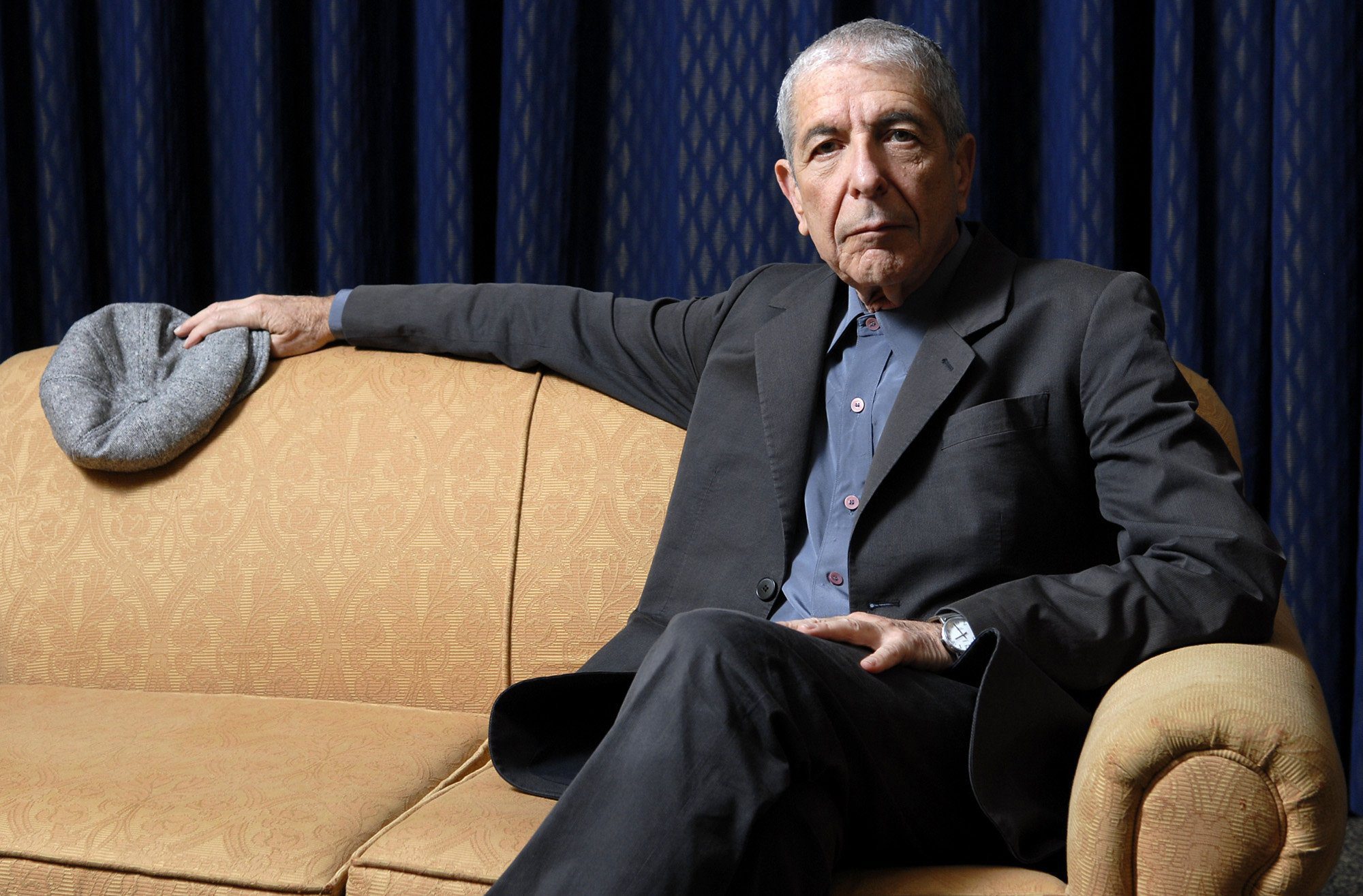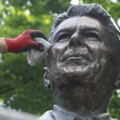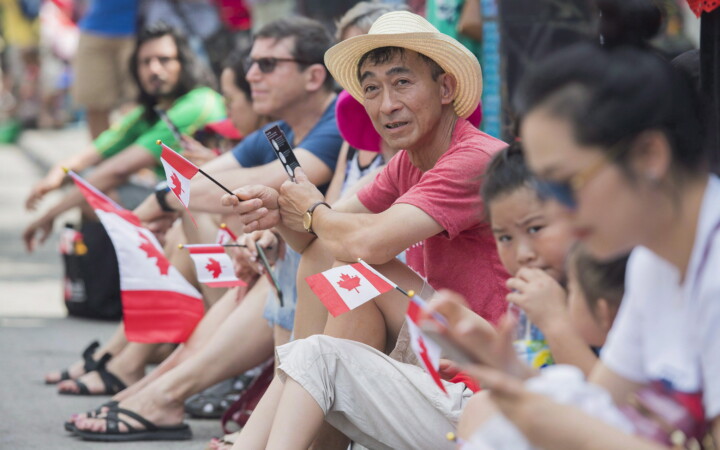You would think you would remember a conversation with Leonard Cohen, but I remember almost nothing of mine. I assume we talked about Montreal, because it was the summer after I graduated from high school in Victoria and before I moved to Montreal for university, and I can’t think what else the 60-year-old singer and an 18-year-old student would have had in common.
My summer job was running a hot dog stand, and he was in town for a concert promoting his latest album, The Future. The album had sparked one of the periodic revivals in public attention that marked Cohen’s career, and without that recent media coverage I might not have recognised the rather formal older man who approached me to ask if I knew where he could get a lemonade.
Before that summer, I’d known Cohen as a name attached to a much younger face on the covers of old books in the Oak Bay library’s modest Canadian poetry section, and on the back cover of Flowers for Hitler, his third volume of poetry published in 1964, which I had taken from my father’s bookshelf to read at the hot dog stand that day.
Cohen must have been surprised to find a copy of his book on a Victoria street corner because he invited me to join him for that lemonade. So I moved the cooked hot dogs to the warming shelf and walked across the street to the Contempo Cafe. I’m pretty certain we didn’t talk about his book, which he had written on the Greek island of Hydra in the long summer of 1963. Asking a writer about his writing seemed impertinent to me then, as it does still.
There is not much of Hydra in Cohen’s writing—surprisingly little, in fact–—but every biographer says that there is much of the island behind it. Greece, they say (and he said so too from time to time) provided the right mix of estrangement and encouragement that he needed to outgrow two limitations: the limitation of growing up Canadian and the limitation of the written word.
Although he wore many outfits in his career—Bohemian linen in Greece, denim and leather in New York, monks robes in California, trim dark suits on the road—he was never far spiritually from Montreal and he compensated for it by distancing himself physically. Cohen needed the physical isolation of Hydra to write as much as he needed the island’s rag-tag audience of artists to encourage him to compose and sing.
I split this last September between the islands of Hydra and Corfu, and I wondered if Cohen would have been happier on Corfu away from the expatriate writers and painters who crowded Hydra’s small harbour croisette. More a commune than a community, Charmian Clift, the Australian doyenne of the group, described her fellow artists as “insurgents all who have rebelled against the station in which it pleased God to place them.”
A friend on Hydra, Demetri Leousi, told Cohen he was the first Jew to own property on the island. How different then it was both from his middle-class childhood in Montreal and from Corfu, with its old Jewish quarter, where 2,000 people were harried by the occupying German army and hounded onto boats bound for the death camps of Eastern Europe.
Would Cohen, I wonder, have written Flowers for Hitler differently in a place haunted by Hitler’s ghosts? Would he have written it at all, or would he have become a different writer amid Corfu’s crumbling Venetian splendour and semi-tropical floral abundance?
Unlike Corfu, which is lush and tree-tangled and saturated in history, barren Hydra looks and feels like a blank canvas. The arid emptiness of Hydra’s rock and scrub no doubt suited an artist who craved asceticism. Corfu is cosmopolitan and myth-layered and Cohen was already both of those things by nature; he might have drowned in Corfu’s real and imagined lushness.
It is impossible to visit Hydra without thinking of Cohen. For Canadians of a certain age or disposition, Hydra has been our fantasy of escape. While we bundle and trudge through long winters, the island shimmers somewhere over the horizon, impossibly hot and blue. It is there just off-screen in Ladies and Gentlemen, Mr Leonard Cohen, the 1965 movie that followed the poet around Montreal on one of his annual trips home. It is Shangri-La and Brigadoon, and Cohen was our guide.
During my first few days on the island I sought out reminders of Cohen: his house, the squares, cafes, and swimming coves captured in black and white photographs in magazine spreads and in grainy colour home movie footage in the 2019 documentary Marianne & Leonard: Words of Love. He was my connection through home to the island. But after a couple of days it started to feel uncomfortably voyeuristic.
I hadn’t come to pay homage to Cohen. If I had visited in my 20s I probably would have tried to steal whatever it was he had found there, but I’m too old to syphon another man’s ambition. Besides, I’ve lived in enough literary cities to know that seeing the places where a writer lived adds nothing to their work. Re-reading a few of Cohen’s poems on Hydra, I got nothing I didn’t get when I’d read them in Victoria or Montreal. Less, even.
After that, I found myself trying to avoid Cohen. I hiked a narrow path into the mountains to the remote whitewashed monasteries (hadn’t Cohen said he avoided them?). I left late when the sun was high and the air was heavy, and my white linen shirt stuck to my damp skin, so I unbuttoned it. An old woman driving an ancient donkey in the other direction approached me and burst into a toothless cackle. “Zorba! Zorba!” she sang and did a little twirl with her hands above her head.
At the monastery, the caretaker served me cold water from a cistern carved deep into the rock. I liked this Hydra, away from the crowds and Cohen. I decided that it was more interesting than whatever he may have left here. After all, it was Cohen who sought out Hydra; Hydra didn’t seek out Cohen. The island didn’t need him then and doesn’t need him now.
But it is surprisingly hard to avoid a fellow countryman on a small island, even if he is dead. Another day I walked along the cliff path that leads out of town for movie night on the beach at Kamini Bay. I ate free souvlaki as the sun took its time setting over the glassy sea. The screening was of the first episode of a new television series called So Long, Marianne, which had been shot on the island. It was interesting to see how they had recreated the island in the 1960s, but otherwise it left me cold.
I got enough of the younger Cohen’s poetry when I too was young, and his later poetry really wasn’t very good. The last collection he published, the Book of Longing, is bloated, full of silly ditties and self-indulgent, often pornographic doodles. It reminds me of John Lennon’s chapbooks, which no one would read if they hadn’t been written by John Lennon. Even the better poems feel like Cohen, alert to the beat of time, brought them out of the writer’s dark room underdeveloped.
A piece like “Alexandra Leaving,” a play on Cavafy’s “The God Abandons Antony,” might have been better—even good—with more work, but in this state it’s more of an insult than an homage to the original. Better to read Cavafy raw, especially in Greece, and save Cohen’s thin late verse for cramped Canadian cafes, or forget it altogether. I bought a used collection of 20th-century Greek poetry at the Hydra Book Club, and for the rest of my trip I read only that.
In its review of a posthumous collection of verse and notebook jottings that Cohen was rushing to complete before he died, the New York Times was scathing.”Cohen was not a poet who accidentally became a lyricist; he was a lyricist who for years fooled himself into thinking he was a poet”’ Re-reading his poetry this month, I’m convinced that’s right. There is a reason his poetry is lightly anthologised, at least relative to his fame. He is our unforgettable poet of mostly forgettable poetry. His songs still carry an ineffable power, but I don’t think I’ll ever read his poetry again.











